Best Driveway Sealer – The Top 10 Choices To Buy Right Now
The best driveway sealers protect your driveway from moisture, chemicals, extremes of temperature, and oil stains. Although sealants won’t cure existing issues, like cracks, they will help prevent such damage from forming in the first place. Aside from keeping out damaging elements, buying the right driveway sealer is essential to extend paving life.
The best driveway sealer offers a long history of resistance by reducing moisture and chloride ion penetration. Sealants have shown increasing durability by increasing the critical saturation time, reducing freeze-thaw exposure conditions, and oxychloride formation. Sealers offers varying advantages based on their mechanism of action, chemical structure, functional type, and amount of active substance. Some of the best products in the sealer marketplace include – Foundation Armor SX5000 Sealer, Gardner-Gibson 7545-GA Sealer, AQUA-X Clear Sealer, Henry E-Z Stir Driveway Sealer e.t.c
Driveway sealers also help enhance your home’s appearance and boost your property’s value. This article explores why sealants are essential, their benefits, cost, and the best sealer options for your driveway.
Why Is Sealing Driveways Important?
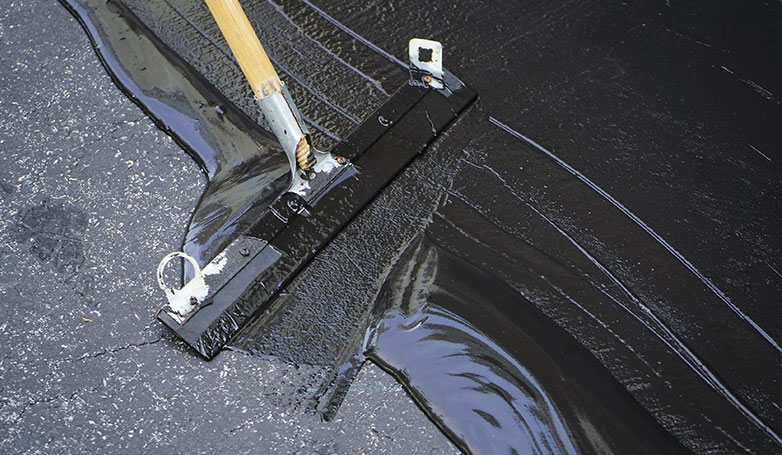
Sealing is essential during driveway installation, especially if you want to maintain your driveway integrity for years. Sealing your driveway is a good way to improve the look and boost the integrity of your property. A newly sealed driveway is beautiful, easy to clean and maintain.
The best 10 driveway sealers filtered by category
When it comes to choosing a driveway sealer, the market offers various options tailored to different needs. Here are the best driveway sealers categorized by their base materials, providing you with insights into their specific benefits.
1. Coal Tar-based Sealers
Coal tar-based sealers are coal derivatives. They are commonly used on asphalt pavers or driveways and are suitable for providing protection and enhancing the shiny appearance of asphalt surfaces. Coal tar sealants are a byproduct of the coal distillation process; they are easy to apply and last long on driveway surfaces. A good example is the Latex-ite Gal. Asphalt Driveway Filler Sealant.
Pros
- The Latex-ite gal coal tar sealant is an emulsion-based low – VOC formula.
- It is durable, creates a strong wear resistance barrier, and is perfect for withstanding heavy traffic.
Cons:
- Although coal tar-based sealants have low volatile organic compounds, the air quality is not entirely void of VOC and can cause great air pollution during installation.
- Also, coal tar sealants have a longer curing time than other sealants. Actually, you must wait days before you can drive into your driveway space.
2. Asphalt-based Sealers
Asphalt road sealants are also known as pavement sealers. They are made of similar materials as the asphalt itself. In fact, they protect the asphalt surface from UV damage, moisture, and small cracks and can bear heavy weight or traffic. They are usually more expensive than coal tar.
Pros:
- Asphalt emulsion sealers are eco-friendly and safer for the environment.
- They provide robust protection, enhance appearance and provide UV resistance.
Cons:
- Asphalt emulsion sealers must be applied more than once as they have a shorter lifespan and are not as durable as other dealers.
3. Acrylic-based Sealers
If you are looking for an environmentally friendly sealer, the acrylic ones are the best driveway sealers for you.
Acrylic-based sealers are formulated with a blend of acrylic polymers and are suitable for surface protection. They are also easy to apply, maintain clarity no matter the weather, and are slip-resistant. They come in water-base, solvent-base, cure, seal, and even high solids.
Pros:
- Solvent-based acrylic sealers contain a solvent that gives a better seal and penetration.
- They are more durable than other acrylic-based products and provide robust surface protection.
Cons:
- Acrylic-based sealers can have a terrible odor and high VOC content, making them unfriendly to the environment.
4. Concrete-based Sealers
Concrete driveway sealers increase concrete driveway durability and appearance. They protect concrete surfaces from cracks, moisture, harmful chemicals, and UV rays. A good example is Eagle Natural Penetrating Sealer.
Pros:
- They have an excellent UV resistance
- They are easy to maintain.
Cons:
- Concrete sealants can be slippery, and difficult to apply, and the curing time can annoy homeowners.
5. Epoxy-based Sealers
Epoxy sealers are protective coats of sealant. They last longer before they wear off from your driveway surface. Epoxy sealers are easy to maintain and are known for their protective coating. Like acrylics, epoxy sealers come in different types, including solvent, water, solid, and epoxy coating, with metallic effects or decorative flakes. A good example of an epoxy-based sealant is Dura Grip 1 gal. Epoxy Non-Slip Concrete Sealer
Pros:
- Solvent-based epoxy sealers are more protective and durable.
- Barefoot friendly
Cons:
- Epoxy sealant requires a more intense preparation before sealing. Small cracks or imperfections must be filled and sealed before applying an epoxy sealant.
- After application, temperature and humidity can easily affect the curing process.
6. Polyurethane-based Sealers
Some of the best driveway sealers are multi-purpose and can seal wood, concrete, or metal. Polyurethane-based dealers are one of them.
An example of a polyurethane-based sealant is polyurethane 10.1 oz. Gray Premium Commercial Grade Sealant …
Pros:
- Protect against water and UV
- They are low maintenance
Cons:
- Polyurethane also requires proper surface preparation.
- Takes a longer time to cure
7. Penetrating Driveway Sealers
Penetrating sealers can penetrate the pores of driveway surfaces. They are not usually appreciated on the surface because they exert most of their work from within. However, they are 100% protective and tough. A good example is TileLab SurfaceGard 0.75 qt. Indoor/Outdoor Penetrating Sealer for …
Pros:
- Penetrating driveway sealers are tough, durable, and do not cause any harm to the environment in any way.
- They also offer invisible protection to driveway surfaces.
Cons:
- With penetrating sealers, you must do intense work preparing the surface before sealing.
- Limited stain or chemical protection.
8. Natural Oil-based Sealers
Unlike penetrating sealers, oil-based sealers are one of the best types of driveway sealer, and they have a darkening effect and penetrate the surface of your driveway easily. 5 gal. Natural Cedar Sealer is an excellent example of a natural oil-based sealant.
Pros:
- A striking advantage of natural oil-based sealant is its flexibility and ability to contract and expand with temperature.
- They are less expensive and offer accessible applications.
Cons:
- Most oil-based sealants have an unpleasant odor and a high level of VOC.
- They also take a longer time to cure.
9. Polymer-modified Sealers
Polymer-modified sealers provide robust protection and durability. With regular maintenance, a polymer-modified sealer will keep your driveway looking new all the time. An example of a Polymer-modified sealer is DAP AMP Advanced Modified Polymer 9 oz.
Pros:
- They provide UV resistance
- They adhere excellently to various surfaces
Cons:
- They make surfaces slightly slippery
- They require regular maintenance
10. Color-coating Sealers
Just like polyurethane-based sealers, color-coating sealers can be used on different surfaces. Color costing sealants seal pores perfectly, enhance driveway appearance, and have a beautiful finish. A good example of a color-coating sealer is Ames Blue Max.
Pros:
- Protects against UV light, chemicals, and stains
- They are easy to clean and maintain
Cons:
- It’s usually not a suitable DIY project
- They are relatively expensive
What Are The Benefits Of Sealing Driveways?
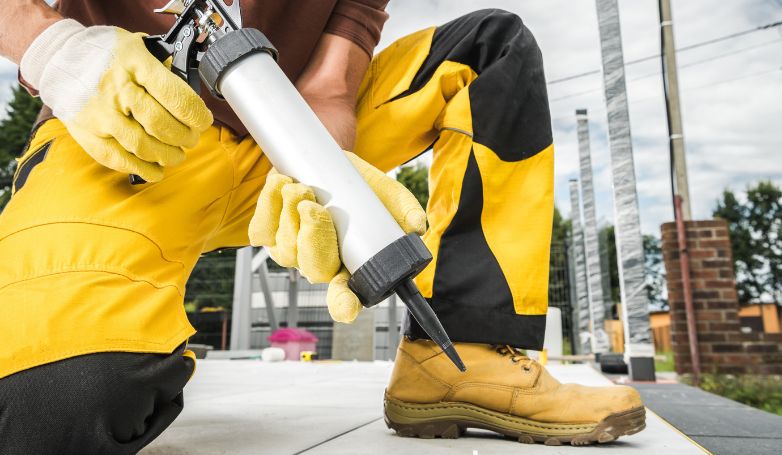
Sealing your asphalt, concrete, or stone paver driveways has many benefits. Below we will discuss some of these benefits and see how they can add to the value of your property.
Protection against UV rays:
The best driveway sealers protect your driveway against the damaging effect of UV rays from the sun, rain, chemicals, and freezing temperatures. If you want to enjoy a seamless drive and reduce damage, seal coating will reduce cracks, fading, and damage that may result from the sun’s rays.
Water damage
Besides improving the appearance of your pavement, the best driveway sealer will protect your driveway surface from excess moisture seeping into the pavement. Seal coating seals off cracks or openings on your driveway and prevents oxidation from taking place on your asphalt surfaces. Usually, moisture encourages oxidation which causes asphalt aggregate to deteriorate faster.
Chemicals and freeze-thaw Cycles
Sealcoating your driveway is the best protection against harsh chemicals and freeze/thaw cycles. When chemicals or ice stay on the surface of your driveway for too long, they cause the surface of your pavement to lose its tensile strength or force. Concrete driveways are more affected by the freeze-thaw cycles and may result in internal cracking or surface spalling; sometimes, the chemicals used to melt the ice can cause more damage.
Enhances the aesthetic appeal of your driveway
If you want to boost the value of your property and enhance the aesthetic appeal of your driveway, you should consider sealing. Sealing provides your driveway with a new and uniform appearance.
Read more: Brick Driveway Edging
Things To Consider When You Choose a Driveway Sealer
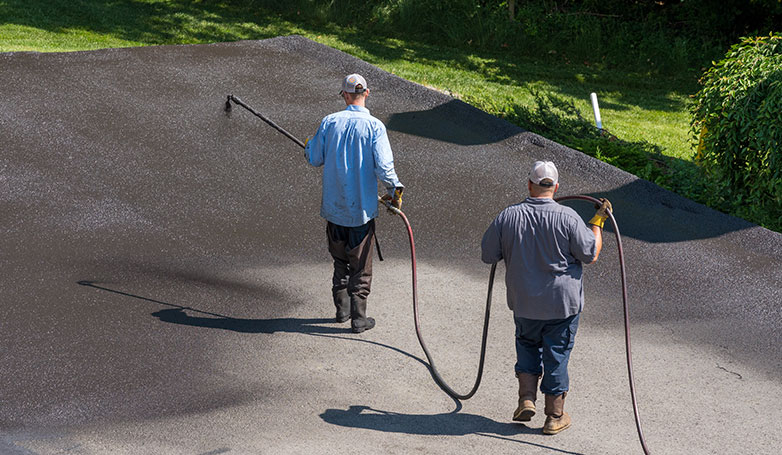
A driveway sealer provides a protective barrier and helps maintain the integrity of your driveway throughout different seasons. However, the right coat of sealant is needed to protect your driveway. Below are factors you should consider when choosing a driveway sealer.
Type of sealer
Different sealers offer different levels of protection. In this case, choosing the correct type of sealer will significantly influence the finishing and appearance of your driveway. Also, some sealers are formulated strictly for asphalt and concrete driveways, while others are meant to be used on other pavement surfaces. Knowing the best driveway sealer you need will help a lot. Sealers come in water-based, which is more eco-friendly but doesn’t last long and oil-based sealers which are long-lasting.
Climatic Conditions
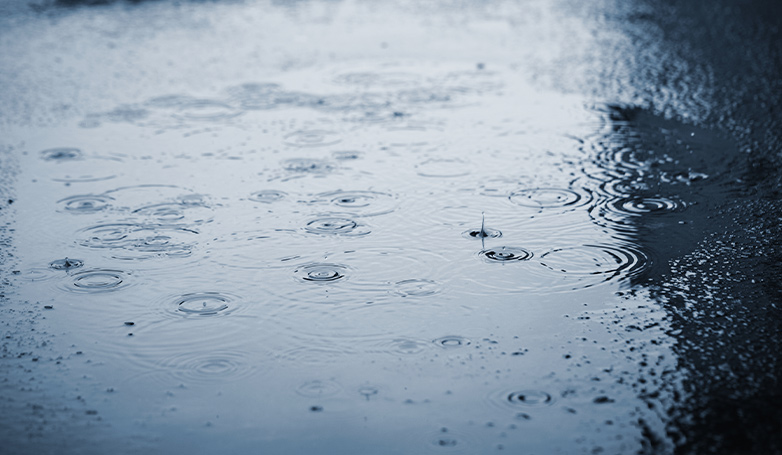
The weather condition goes a long way in deciding how long your sealed driveway will last. In hot climates, it is best to go for sealers that have UV resistance to protect your driveway surface against the rays of the sun, and during winter or in colder climates, you should use a sealer that can withstand freeze/thaw cycles. Always check in with your constructor and ask what sealer is best for your location.
Driveway material
Depending on the driveway material you have installed, you must purchase a suitable sealer. Usually, asphalt sealants penetrate porous surfaces and seal them together, thereby protecting water, oil, and chemicals. Concrete sealers protect against moisture absorption, UV rays, and stains. On the other hand, sealers formulated for stone driveways or pavers increase their appearance and protect the surface from stains and harsh chemicals. It’s always important to consider the type of driveway material you’ve installed before choosing a sealant.
Budget
The best driveway sealers are always available for you. However, you must consider your budget before deciding what product type to use. Always remember to choose a sealer that meets your financial constraint and can provide your driveway with the best protection.
Before Choosing a Sealant, You Should Research
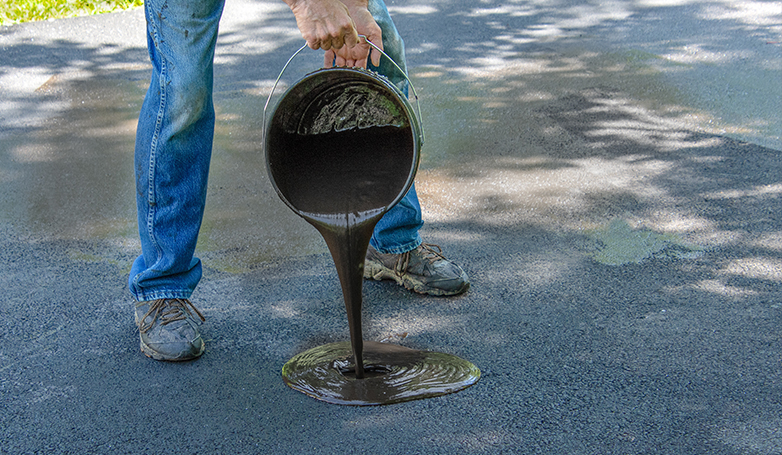
Before choosing a sealant for your driveway project, ensure the sealant you decide on can impact the surface of your driveway and seal every porous or concrete surface. You must also research the application and maintenance requirements; here are some other factors you should consider before choosing the best driveway sealers.
Environmental Impact
Researching the environmental impact when choosing the best driveway sealers is crucial. Some sealants contain the same harmful substances or chemicals that can destroy soils, plants, or waterways. Researching the sealant’s environmental impact will help you maintain an eco-friendly and sustainable driveway.
VOC Content
The impact of Volatile Organic Compounds in the environment is real. Some sealants in the market have high VOC content with low water solubility and a very high vapor pressure that allows their release into the air. In our eco-friendly world it’s always essential for you to research the volatile organic compounds content of any sealant you want to purchase.
Local Regulations
Some regions have legal regulations and requirements guiding the purchase and use of driveway sealant and if you fail to comply you will be required to pay a fine. Like in the United States, some cities have banned the use of coal tar sealants due to the increased amount of polycyclic aromatic hydrocarbons which are highly carcinogenic. Ignorance has no face in the hands of the law. It’s very vital to check your region’s local laws before deciding on the driveway sealant to use.
Conclusion
Driveway sealing has so many benefits and sealing regularly is an excellent way to provide protection, boost the integrity of your driveway and improve your home’s curb appeal. Now, you don’t need to settle for less on your new driveway, the best driveway sealers give glossy spark of newness and a crack-resistant experience.

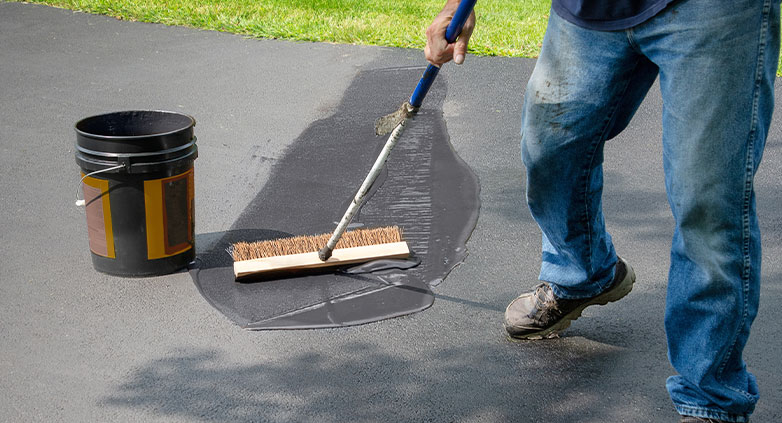

Leave a Reply
Want to join the discussion?Feel free to contribute!